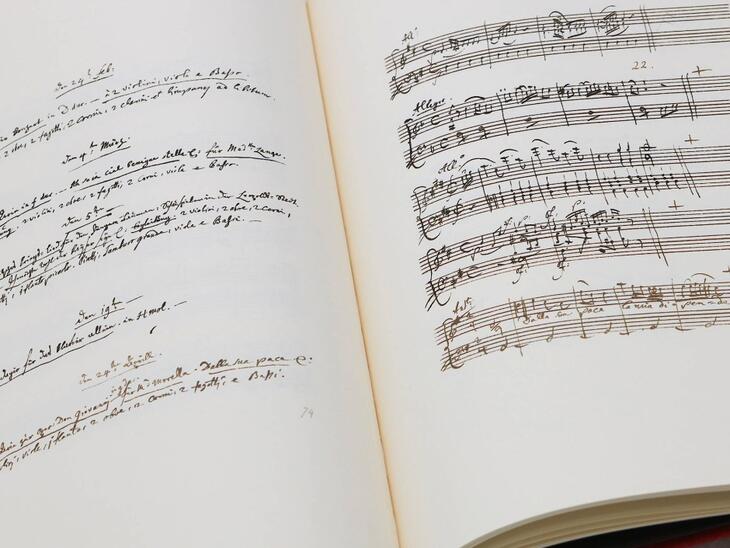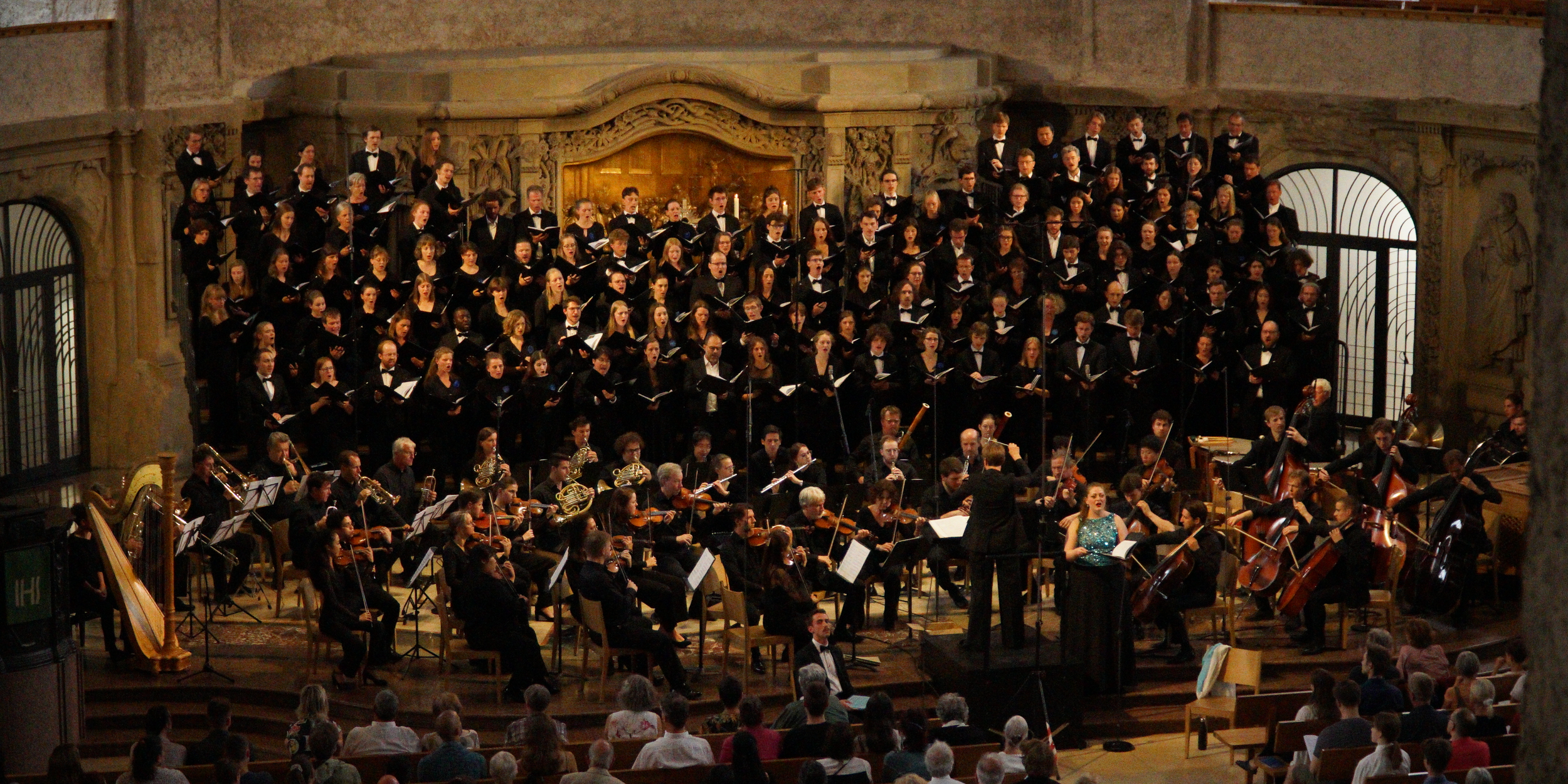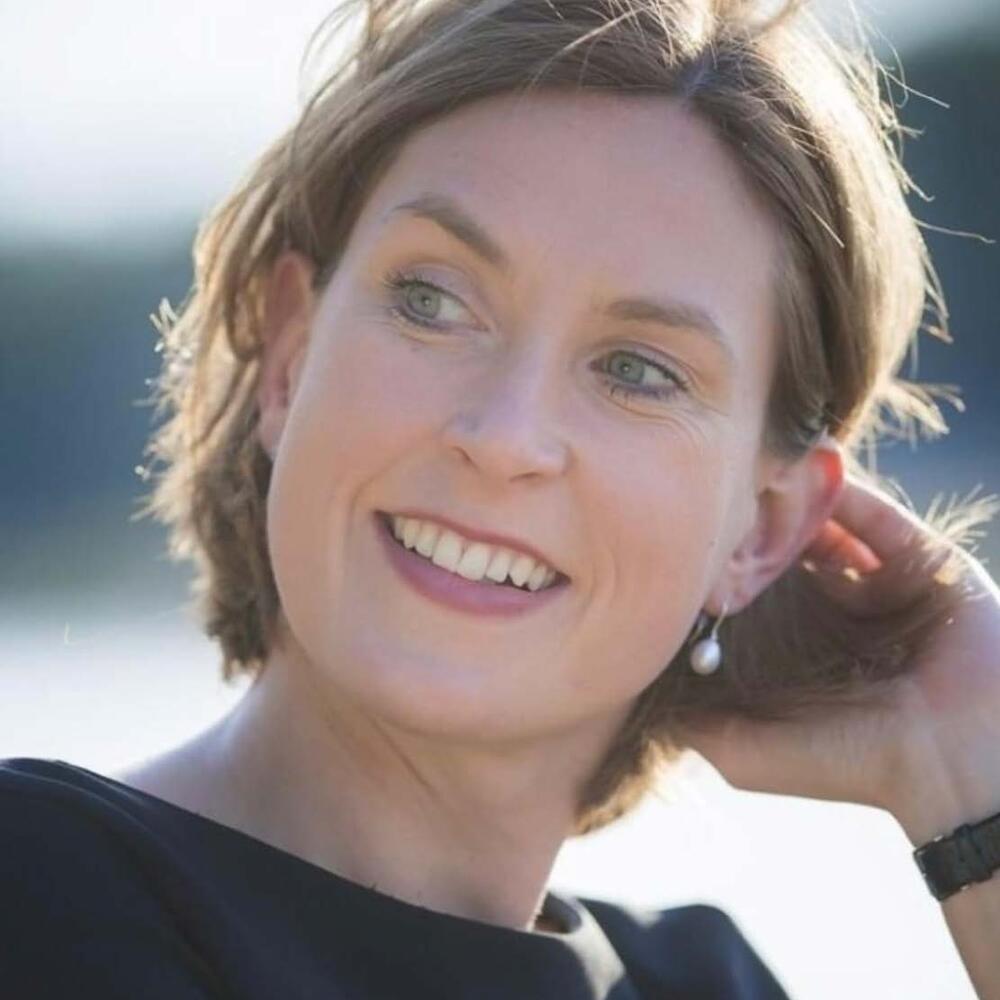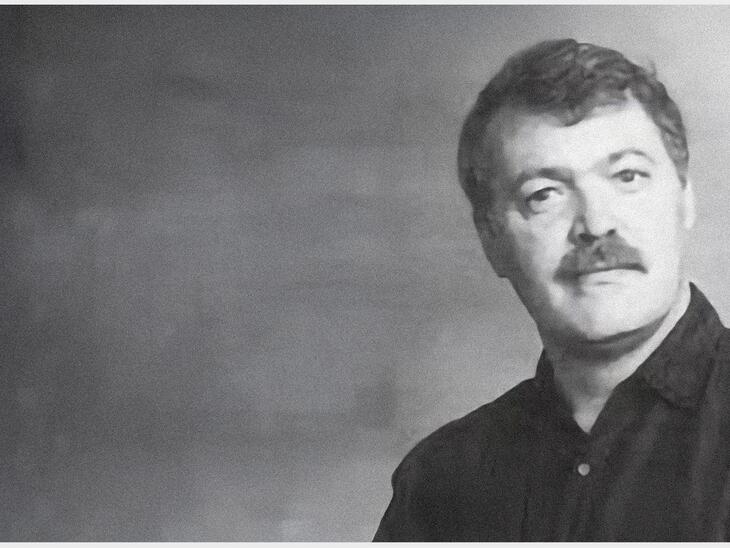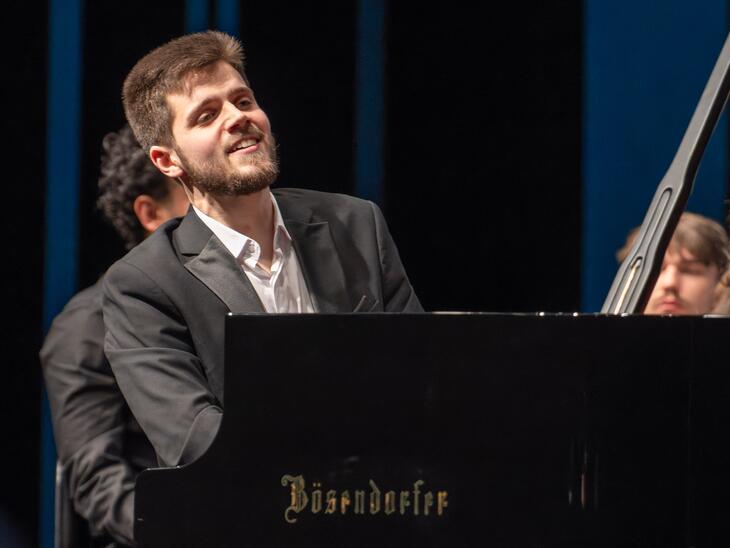What originally led you to choir conducting - singing, conducting or working with people?
As a child, I sang in the children's choir and later in the girls' choir in Dresden. When I was 15 or 16, my choir director took me to a one-week choir conducting seminar organised by the choir association. There I learnt the basics of conducting and sang every evening in a large mixed choir of over 100 participants. That was a very formative experience for me. After that, I was allowed to conduct vocal groups and choir rehearsals in the girls' choir. I attended this seminar every year until I graduated from high school and tried out in front of a large choir. At that time, I didn't realise how extensive the tasks of a choir director were and what skills were required.
You studied in Rostock, Greifswald and Dresden - which of these places had the greatest influence on you musically?
I wouldn't be here now if I hadn't lived through and experienced all of these stages. I spent the longest time in Dresden, where I attended the Kreuzschule, a music and arts high school that is also home to the famous Dresdner Kreuzchor. I learnt the flute, piano and clarinet at the Heinrich Schütz Conservatory in Dresden and was in the girls' choir. When I was 15, I started working at the Dresden Music Festival and was allowed to attend all the concerts and talk to artists. This not only broadened my musical horizons, but also shaped my future career.
The University of Music and Theatre in Rostock was very informal, I sang in the university choir and the chamber choir and took part in many choir competitions and trips. At the music high school in Schwerin, I travelled with the choir every year as a voice coach for the youth choir and as a répétiteur. Later, I was a musical assistant at the university choir.
I only ended up in Greifswald initially because I passed the entrance exam at the Institute of Sports Science in Rostock but didn't get a place. So I started studying in Greifswald at the same time and moved to Rostock after the 3rd semester. In addition to all the usual sports, I majored in sports medicine, biomechanics and sports psychology. And if I hadn't passed the entrance exam for conducting, I was offered the opportunity to do a doctorate in biomechanics in Rostock. I wanted to study at the University of Music in Dresden because I was incredibly impressed by the RIAS Chamber Choir's sound culture and the then director Hans-Christoph Rademann had a choral conducting class in Dresden and conducted the Dresden Chamber Choir. As I passed the entrance examination, Dresden became my next musical station. A year later, I added orchestral conducting with Ekkehard Klemm, with whom I was an assistant at the Dresden Singakademie and to whom I am very grateful for everything I was able to learn and try out in practice during my studies. A teacher who always supported and positively encouraged his students.
Is there a concert or project from your career to date that has special significance for you and your work?
It really is the plurality of experiences and challenges: With the Dresdner Kammerchor and later with the VocalConsort Berlin, I travelled to many cities and concert halls in Europe, Asia and Israel during my studies and was able to get to know an incredible number of famous conductors from a singer's perspective in rehearsals, concerts and CD productions. Blomstedt, Creed, Mc Creesh, Chailly, Young and Thielemann are just some of the important personalities. After graduating, I took over the university choir in Dresden and its chamber choir and in 12 years rehearsed and performed over 200 concerts with music from all stylistic periods and genres, in a cappella and choral symphonic music. Since 2012, I have also worked as a freelance conductor and choral director at the Semperoper in Dresden, as well as taking on choral rehearsals for the Staatsschauspiel in Dresden. I also managed the ChorAlarm project as part of the Junge Szene at the Semperoper and led choir promotion in schools, as well as SingAlongs with pupils from all types of schools
What attracted you to accept the professorship for choral and ensemble conducting at the Mozarteum?
I've been commuting between Salzburg and Dresden for the last five years - a lot of effort, especially during the pandemic, when choir rehearsals and opera work were hardly possible. Despite my contract at the University of Dresden, this was not a long-term solution. After a substitute position in Munich and a senior artist position in Vienna, I applied for the advertised professorship in Salzburg to succeed Herbert Böck. For me, this position combines the refreshing work with young adults, the teaching of conducting skills, the discovery of choral music of all stylistic periods, genres and ensemble formations, choral voice training and demanding chamber choir work.
You have already been a guest in Salzburg, at the Easter Festival, with the Bach Choir and also at the Mozarteum: how were your first few months ‘fixed’ in Salzburg?
The first few months were a challenge, as there are so many different programmes and curricula. I don't have a professorship with my own class, but students from almost all programmes can come to me. That made it a bit difficult to get an overview. But the great thing about this centre is that you get support from so many departments. From teaching management to event technology, PR, printing, library, personnel development, event management, colleagues from the departments and the Rectorate. That made my start a lot easier. Many thanks for that! And: I really enjoy working with the students, as they say in Austria, and I really enjoy coming to the Mozarteum.
You have worked with so many orchestras and choirs around the world, including directing the Dresden University Choir until 2024 - what do you take with you from this diversity to the Mozarteum?
For me, choral singing is the most beautiful form of expression. When we sing together, we listen to and look at each other, breathe together, have uniform vocal colours and, ideally, a common idea of the piece. When these parameters interlock and the chords click into place, the result is a homogeneity of sound that is incredibly moving. As a conductor, I try to develop and shape this special sound through intensive rehearsal work on the score using gestures. If you can do that, then something magical is created that everyone in the room can feel. I want to bring this to life and pass it on.
What impulses are central to you in choral work in general and at university in particular?
Many students spend a lot of time alone in the practice room during their studies. Unlike in the orchestra, where only certain desks are occupied, the choir offers everyone a chance to actively participate - a great benefit for the university! Around 150 students sing in the university choir every week, 24 in the chamber choir and there are also various choir projects. Choir has the potential to be both an identity-building community and a public endeavour. Too little attention is also paid to the profession of radio choir singer. Singers are often very well trained as soloists, but have too little knowledge of the literature and lack ensemble skills in this area. This is where the chamber choir can make a very important contribution. In my music studies, I have the fondest memories of concert tours with a cappella music and large choral symphonic performances. I would like to make that possible for my students here too. Jörn Andresen (University Professor of Choral Conducting at the Mozarteum University) has been doing outstanding work with the university choir and vocal ensembles in a cappella, choral symphony, oratorio and early music since 2019. I am delighted to be expanding the choral field with the chamber choir. Conducting only becomes audible when you do it. That is why there is now also a practice choir for ME/IGP (music education, instrumental music education, etc.), in which students rehearse and conduct repertoire independently - especially for youth choirs and schools.
